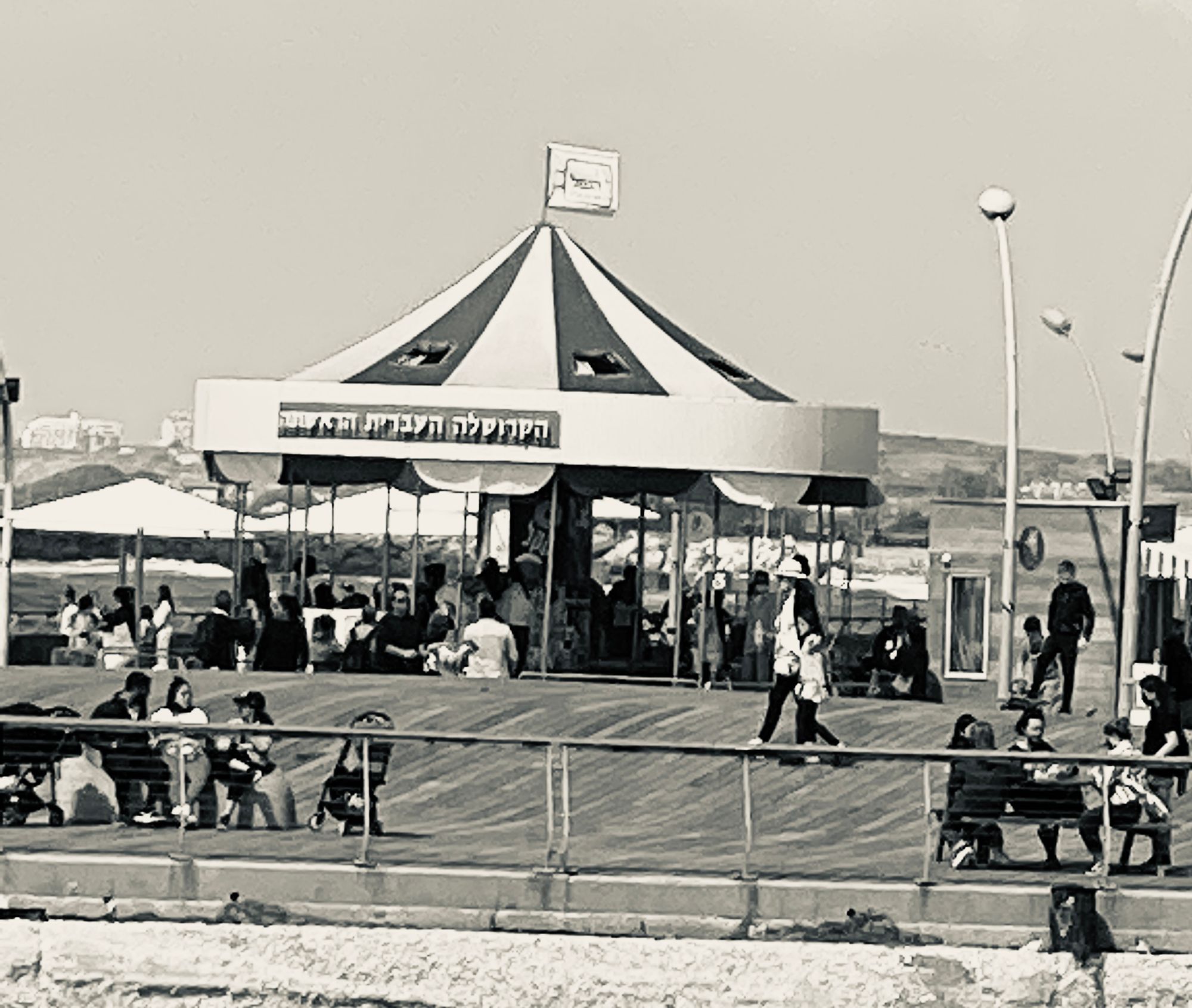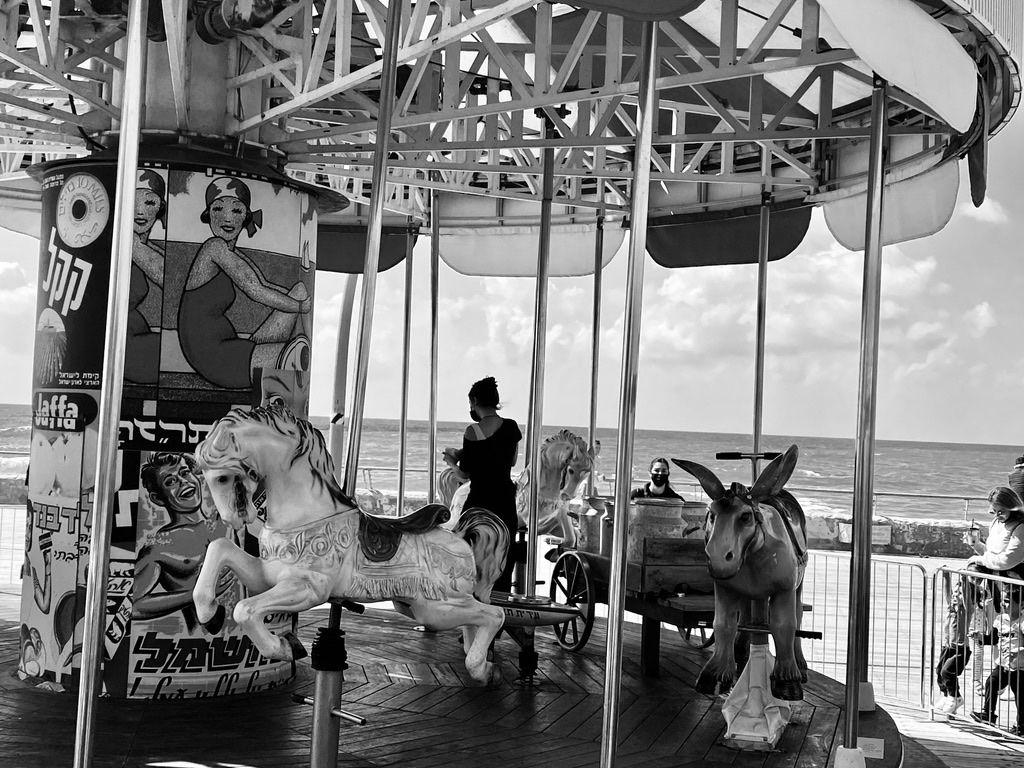We fly into Ben Gurion airport a day before the Seder. The United flight is packed tight with Israeli families heading home for the holiday. The passengers are remarkably compliant in keeping their masks on. The plane lands, we deplane, clear customs and are directed to a large tent to undergo a required Covid test. Considering the circumstance, things appear efficient and organized. A few hours later, we get a text with an all-clear message: Your test is negative. Throughout the entire entry process, no one bothers to ask if we have been vaccinated (we have).
We spend the Seder agreeing not to discuss politics — yet speak of little else. Between the reading of the Haggadah, the singing and the endless delicious dishes being served by my brother and sister-in-law, we have to debate and construct a viable coalition using every possible coalition combination before the Seder ends or else. There isn’t an Israeli alive that is not capable of constructing a viable coalition government. The only ones incapable of such a mathematical miracle are the actual politicians.
It’s Passover day and we walk towards the old port of Tel Aviv. Scores of families are following the Yarkon River trail towards the port. It’s a sunny day with an early spring breeze, what Israelis like to call "the best weather of the year." Since it’s "the best weather of the year" Israelis are not really sure what to wear. Some are in T-shirts and shorts and some are in parkas.
The Port of Tel Aviv is the place to be on the first day of Passover. The line in front of the ice-cream store snakes around the corner. There are kids, babies, dogs and some more dogs. The only ones not wearing masks are the babies and the dogs. Clearly, being a dog in Israel during Covid comes with some extra advantages.
Right at the center of the port a large old-fashioned carousel offers 12 NIS rides (about $3 for a 5-minute spin). I line up with my seven-year-old granddaughter and, as the line moves closer to the front, a young Israeli father with a reluctant toddler cuts right in front of me. I make a mistake of protesting, but he assures me that he was there first, adding "Chag Sameach" — apparently in keeping with a long Israeli tradition of the righteous cutting lines during important holidays.
We get to the front just as the gate opens up to take our place on the carousel. Parents and grandparents push us aside as they rush to secure the best place for their little ones. No "Chag Sameach" apologies once the floodgates are open. The winds pick up as the carousel starts its five-minute spin. It’s cold and my granddaughter is shivering. The well-prepared look cozy in their heavy winter coats. The rest of us cannot wait for this to be over already.


It's the second day of the Chol HaMoed. During a holiday dedicated to the memory of our journey from Egypt to Canaan, many Israelis commemorate that journey by walking endlessly through the long and crowded corridors of Israel’s shopping malls. Unlike America’s crumbling malls, Israeli malls are doing very well. We join in this Israeli tradition of shopping during Chol HaMoed and it's clear that, after a year of closures, Israelis are very dedicated to restoring this ancient tradition. The holy spirit of Pesach comes alive throughout the corridors of Tel Aviv’s Dizingoff Mall.
At dinner, we discuss this noble commerce with extended family and they explain why everything is so crowded. Many Israelis usually travel abroad during Passover. This year, the country reopened after the extensive public vaccination effort, but travel abroad is still impossible, forcing Israelis to stay home in record numbers. Hotels, resorts and vacation rentals are at full capacity — as are national parks, nature trails and public attractions.
It feels like an entirely different reality than Michigan. Over the past 10 days, the number of daily Covid cases here has plummeted, along with the number of hospitalizations. While wearing a mask is still the norm, there is a general feeling that, with so many Israelis vaccinated, things are indeed returning to normal. A very Israeli brand of normal, of course.
The only significant restriction that is still preventing Israelis to feel normal is the inability to travel overseas. And there is nothing more liberating for Israelis than overseas travel. The fear of death by Covid has been replaced by a new syndrome brought about by the fear of missing out on international travel. I am certain that within a few months Israel’s research universities will develop a drug to treat this acute syndrome.
Comments
Sign in or become a Nu?Detroit member to join the conversation.
Just enter your email below to get a log in link.